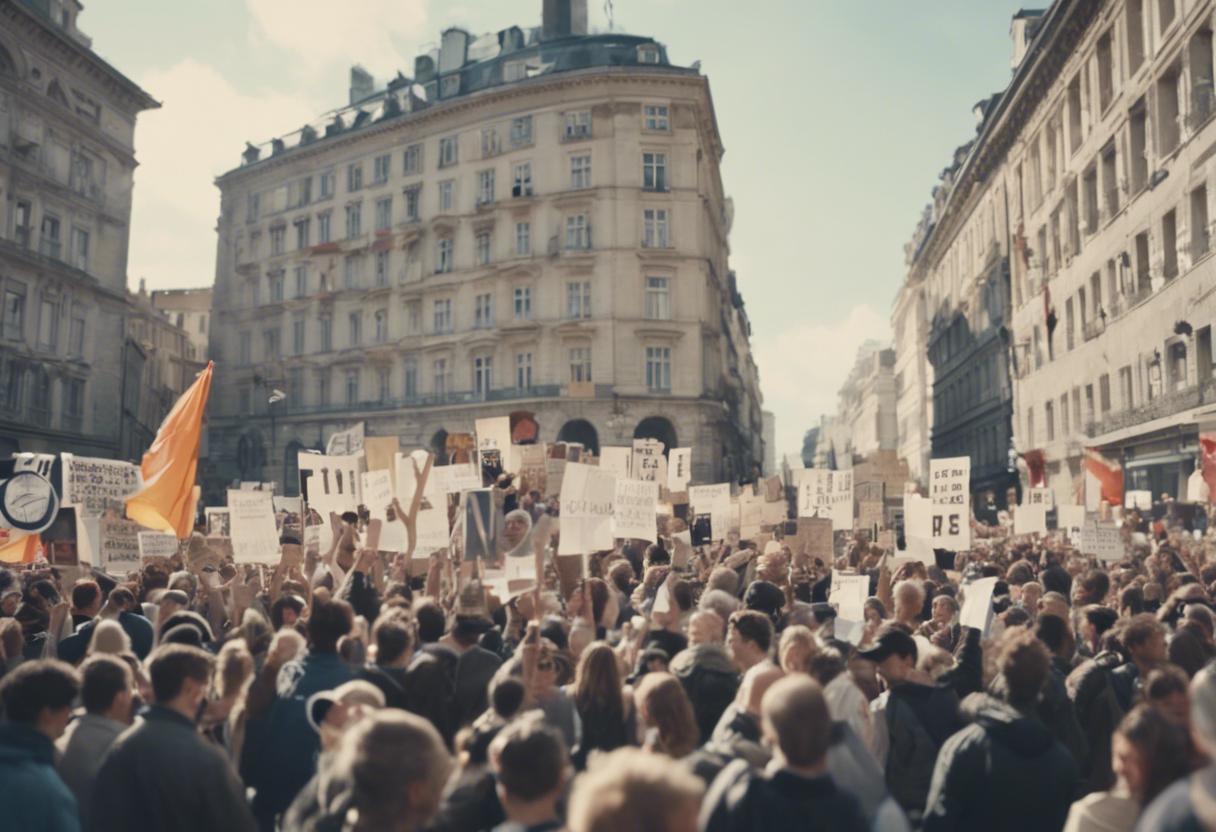Monday will witness street demonstrations in Georgia as the opposition alleges electoral fraud by the current governing party, Georgian Dream. They accuse it of manipulating parliamentary election results and of veering the nation towards Russia, straying from potential European Union affiliation.
Sunday saw opposition leaders converse with Salome Zourabichvili, the Georgian president, who supported their appeal for protest. Preliminary election results show a 54 per cent victory for Georgian Dream with the opposition partnership securing 38 per cent. This outcome is contrary to the projections of two out of three primary exit polls done on Saturday, indicating the opposition’s triumph.
President Zourabichvili, who described the elections as an apparent deception and a Russian covert operation, implored fellow citizens to attend a demonstration in the heart of Tbilisi on Monday evening. She believes this show of disapproval will exhibit Georgians’ refusal to submit to foreign interference and highlight their allegiance to European ideals.
Mikheil Saakashvili, former Georgian President currently serving time for misuse of power charges— something he and supporters label as political victimization by Georgian Dream – stated the need to retake their nation from the fraudulent government.
Tina Bokuchava, the head of the United National Movement (UNM) established by Saakashvili and ruling power from 2004-2012, refused to acknowledge the election results, branding them as manipulated. She pledged that the Georgian people will exert unparalleled effort to regain their European destiny.
Nika Gvaramia, from the opposition’s Coalition for Change, announced that keeping Georgian Dream in power was a categorical non-option, referring to their rule as a constitutional coup.
Contrarily, the existing government, controlled by billionaire Bidzina Ivanishvili, dismissed the accusations of fraud, asserting the elections were legitimate. They argue that voters opted for tranquillity after a campaign where Georgian Dream cautioned that the nation risked entering a conflict with Russia due to the intervention of a western ‘global party of war’ in liaison with the opposition.
Prime Minister Irakli Kobakhidze expressed that the Georgian populace made a solitary compulsion: to select peace and progress for their nation. He dismissed any accusations from opposition about electoral foul play, branding them as “politicians’ frantic efforts to somehow redeem themselves with their voters” and expressed that any challenges towards the constitutional autonomy of Georgia would not be condoned. Kobakhidze emphasised on the EU membership as Georgian Dream’s dominant foreign concern and predicted enhanced relations with both EU and US early next year. The party is generally anticipated to be in favour of a victory for Donald Trump in the forthcoming US Presidential election.
Multiple senior parliamentarians from the European Union, inclusive of Ireland’s Charles Flanagan, collectively declared that the elections were “neither democratic nor just” causing them to reject the outcomes of the result. Georgia’s connections with the EU and US have deteriorated over the years. This is attributed to Georgia’s government forging stronger relations with Russia, despite Russia’s blatant invasion of Ukraine. The West has been accused of undue interference in Georgian affairs, whilst Mr Ivanishvili is threatening punitive measures against UNM and other adversaries post-election.
The EU, in response to suppressive measures on LGBT+ rights and stricter laws on civil groups, rescinded Georgia’s accession process. Brussels also hinted at Georgians possibly being stripped of their visa-free privileges to EU states should the election be severely tainted.
Eoghan Murphy, leader of the observation mission from the ODIHR sector of the Organisation for Security and Co-operation in Europe, stated that mere offering of plentiful electoral choices did not equate it in alignment with international democratic standards. He mentioned, “The profound split within the nation, the unjust pressure on electorates and civil society, and the strain witnessed on polling day illustrate that significant effort and action are prerequisites”. Murphy, the past Fine Gael government minister, added these statements.

